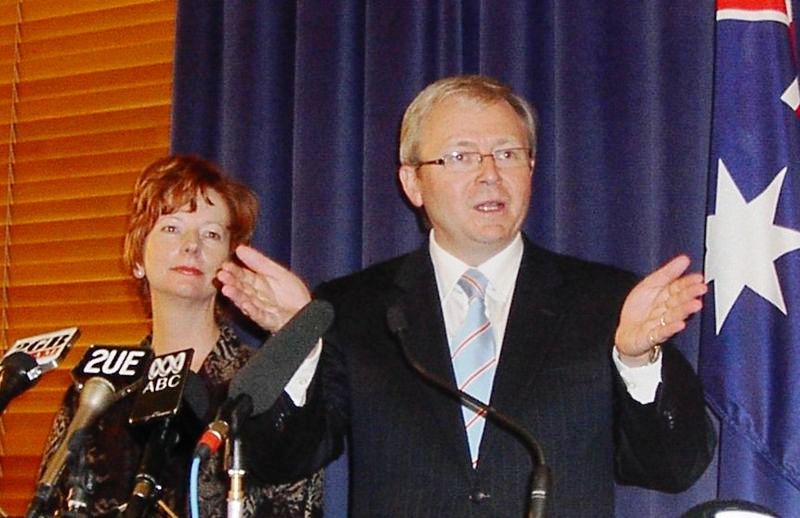For decades, Australians have prided themselves on their laidback lifestyle, their easygoing attitude, and their relaxed, “she’ll be right” approach to the toughest of problems. However recent years have seen a cultural shift, marked by an increasingly vocal section of society whose identity is based around a culture of entitlement. Complaining has become the order of the day for many Australians, who feel cheated by their government, ‘ripped off’ by their economic circumstances, and helpless in society generally. To be sure, Australia’s government is frequently considered to be among the most transparent in the world, its economy is one of the strongest in the Western world, and quality of life is highly ranked by leading researchers.
It was only a couple of weeks ago that an attempt to oust Australia’s prime minister Julia Gillard failed. At the time, Paola Totaro opined in Britain’s The Guardian newspaper that “for decades, it is the British who have worn the “whingeing Poms” label. Now, it’s time for Australians to accept the malcontents’ mantle, because it is they who appear incapable of seeing just how lucky they are”. Totaro makes a good point too – she points out that despite the complaints against Gillard’s leadership, Australia last year celebrated twenty-one years of consecutive economic growth. Those 21 years began in 1991, under a Labor government, and continued under the Howard regime for eleven years, and have continued under Labor’s revolving doors of leadership since 2007. It appears, as Totaro’s article is headlined, that Australians simply don’t know how good they’ve got it.
So what exactly are Australians complaining about? “The cost of living is getting too much”. It could be – but that’s the case in almost every nation. In fact, Australia’s purchasing power parity (PPP), a measure of affordability for basic goods and services, is among the top 30 in the world. “Public sector services are deteriorating”. Again, that may be so, but statistics show that the consequences are better than ever. Despite the allegedly failing health system, Australia’s life expectancy sits snugly above 80 years old, around 13 years older than the world average. In spite of the apparently dire education system, Australia’s literacy rate is 99%, and tertiary education is accessed by thousands of Australians every year under the HELP financial scheme. “Taxes are too high – and increasing!” Unfortunately, the public services which Australians rely upon require money to operate – higher taxes result in a higher standard of services. “We’re working longer hours than ever before!” So is the rest of the world. It’s not nice, but nor is it unique.
“Too much immigration! They’re taking our jobs!” Research shows that Australia’s population would quickly slow if it wasn’t for immigration – and commonsense holds that a growing nation feeds a growing economy, and that creates new employment opportunities. It’s a matter of fascination for many foreigners that Australians aren’t reproducing enough, yet Australia’s government even pays its citizens to have children. Which brings us to the next point. “Our government does nothing for us or the country!” Oh really, like paying people to have children? Or what about for the Australian environment? As Tim Napper subtly suggested on ABC’s The Drum Unleashed in 2011, in implementing a carbon tax the government has administered the easiest solution possible to a public unwilling to compromise on a consumer-led lifestyle, or take responsibility and exercise some sacrifice for the greater good. It is one thing to grumble about the realities of life – it is quite another to expect a government to solve one’s problems.

Kevin Rudd and Julia Gillard
It would seem, given all this, that Australians have developed an insatiable appetite for the good times, an easy life, and overall ingratiating entitlement. What’s really disturbing is the culture of melodramatic complaint, even when it is not justified or informed. An interesting exercise would be to gather a group of Australians who complain about the current government’s economic management, and see how many of them could explain how the economy works. If, then, Australia is a nation of mostly uninformed whingers, then the Australian media must bear some of the blame. The nightly orgy of pettiness which is the evening news in Australian cities seems to steer political debate in Canberra. Scandalous outrage is the order of the day, and in the absence of a reasonably popular and informed alternative, this discourse is lapped up unchallenged by the ignorant masses. Nor is politics itself free from blame – Capital Hill is currently presided over by some of the most uninspiring and forgettable talking heads in history. The statesmanship of the 1970s and 1990s, which divided but also inspired and built a nation, has given way to muckraking of the worst kind – the inconsequential kind. It would be so easy for one leader to take charge and inspire the nation again – against the current backdrop, they would have the public feeding out of their hands. And yet, no one does.
As Australia heads towards a federal election this September, there will no doubt be the usual lightweight political footballs bandied around; tax breaks, funding increases, welfare payments, bad economy, good economy, the Australian dollar. Instead of being grateful that the banks are still open, there will be the usual complaints about how “this country is going to the dogs”. And amid all of that will be an absence of real and meaningful political debate about important issues – like how to get Australia’s literacy rate up to that of, say, Azerbaijan’s, Tajikistan’s, or Armenia’s (all higher than Australia’s in 2010). Or maybe even how to really save the environment – with or without a tax.






0 Comments